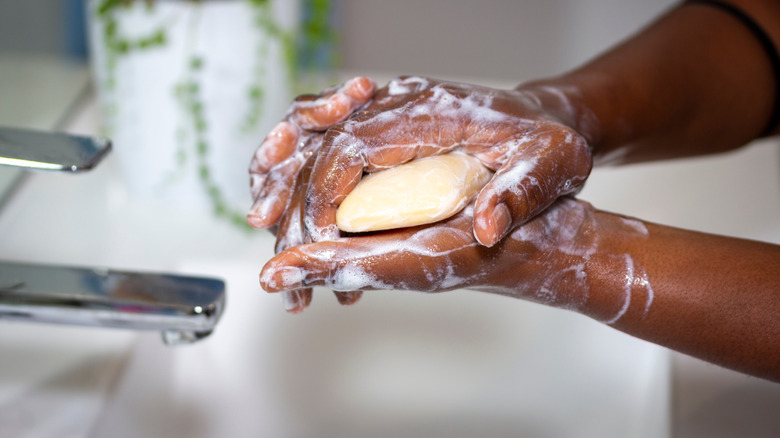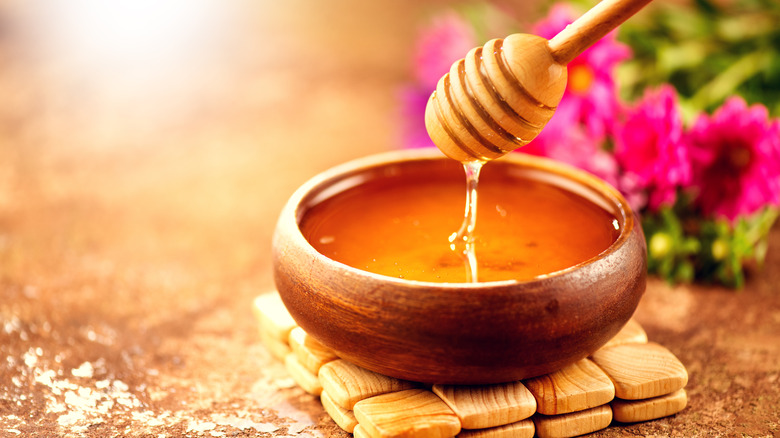Why You Should Stop Using Antibacterial Soaps Immediately
Antibacterial soaps became widely used starting in the 1950s as a way to kill the bacteria that feeds on our sweat and causes bad odors, as per Encyclopedia. Since then, it has been assumed that antibacterial soaps are superior to their counterparts due to their ability to kill the germs and diseases that we accumulate on our skin. However, antibacterial soaps can end up causing more harm than good.
In 2016, the FDA officially ruled on the safety of antibacterial soaps and determined that two ingredients, triclosan and triclocarban, posed long-term health risks. As a result, companies were banned from marketing any products with these ingredients. The FDA also decided to continue investigating the 17 other ingredients found in antibacterial soap to determine their safety for consumers. Director of the FDA's Center for Drug Evaluation and Research (CDER) Janet Woodcock gave her thoughts on the matter. "Consumers may think antibacterial washes are more effective at preventing the spread of germs, but we have no scientific evidence that they are any better than plain soap and water," she explained.
Cone Health confirms Woodcock's assertion that antibacterial soaps have not been shown to add any advantage over soap and water. One of the main concerns is that antibacterial soaps create antibiotic-resistant bacteria, which eventually leads to the need for stronger and potentially more harmful chemicals to kill them. They also kill the good bacteria that makes its home on our bodies. Children, in particular, need good bacteria to strengthen their immune systems.
What you should use instead of antibacterial soaps
Eliminating antibacterial soaps from your home doesn't mean you can no longer disinfect your skin and hands at all. In fact, there are a number of cleansing products that contain natural antibacterial properties, some of which you may have never thought of using. Little Green Dot names regular hand soap as a way to get rid of any harmful bacteria and diseases. You should always aim for at least 20 seconds of scrubbing for the best effects. Additionally, honey is a naturally occurring substance that happens to double as a sweetener and a way to inhibit the growth of bacteria. A 2011 study even found that certain types of honey can speed up wound healing and prevent antibiotic-resistant bacteria from wreaking havoc on our bodies.
Furthermore, cinnamon and cloves are two spices featuring antibacterial properties that can be crushed and made into soaps and other body-care products. Both prevent bacteria from growing on your skin without introducing questionable or harmful chemicals. Yet one more natural way to cleanse your skin and keep harmful germs away is neem soap, as per Just Neem. This cleanser is not only antibacterial — it is also antifungal, antiviral, and antimicrobial. You can even benefit from its ability to relieve pain and inflammation. Either crush the leaves directly to add to a homemade cleanser or buy soaps and lotions that feature neem oil as the primary ingredient.

